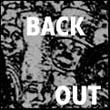the frenzy and destruction of the crowd,
see Jay Martin, Nathaniel West The Art of his Life, Carroll
and Graf, New York 1970, chapter 9 'The Apocalypse of the Second
Hand" which also documents the sudden ephemeral crazes for
dance marathons, stunts and miniature golf. That West instinctively
grasped 'the secret inner life of the masses" and was instrumental
in plotting the birth of 'mass man".
Tod Hackett from art school to Hollywood, working
on a large painting called The Burning of Los Angeles an
apocalyptic landscape with crowd carrying baseball bats and torches,
with grotesque faces , "all those poor devils who can only best
stirred by the promise of miracles and then only to violence."
p.10 Tod looks at the "evening crowd" - compare
to the premiere riot. Tod at the Movie premiere, "Although it was
still several hours before the celebrities would arrive, thousands
of people had already gathered. They stood facing the theatre with
their backs to the gutter in a thick line hundreds of feet long.
A big squad of policemen was trying to keep a lane open between
the front rank of the crowd and the facade of the theatre....
reaction to the individual -" Tod had
walked only a shoret distance along the narrow lane when he began
to get frightened. People shouted, commented on his hat, his carriage
and his clothing. There was a continuous roar of catcalls, laughter,
and yells, pierced occasionally by a scream."
broadcasting the crowd (radio) a man with
a portable microphone describes the event, "What a crowd, folks
! What a crowd !"
the identity of the crowd, :Tod could see
very few people who looked tough, nor could he see any working men.
The crowd was made up of the lower middle classes, every other person
his own standard bearer."
entering the crowd, He whirled around angrily
and found himself surrounded by people who were laughing at him.
He knew enough to laugh with them.
subsumed "New groups, whole families
kept arriving. He could see a change come over them as soon as they
had become a part of the crowd. Until they reached the line, they,
they looked diffidernt, but the moment they had become part of it,
they turned arrogant and pugnacious... They were savage and bitter,
especially the middle aged and the old, and had been made so by
boredom and disappointment."
caught up in the crowd, "The crowd in front
of the theatre had charged. He was surrounded by churning legs and
feet."
the sexuality of the crowd, license and
mass promiscuity, a young woman with torn dress being fumbled and
bitten by an old man. An older woman is pinched, "Lay off that,"
she said goodnaturedly. "I was shoved" he said..."
